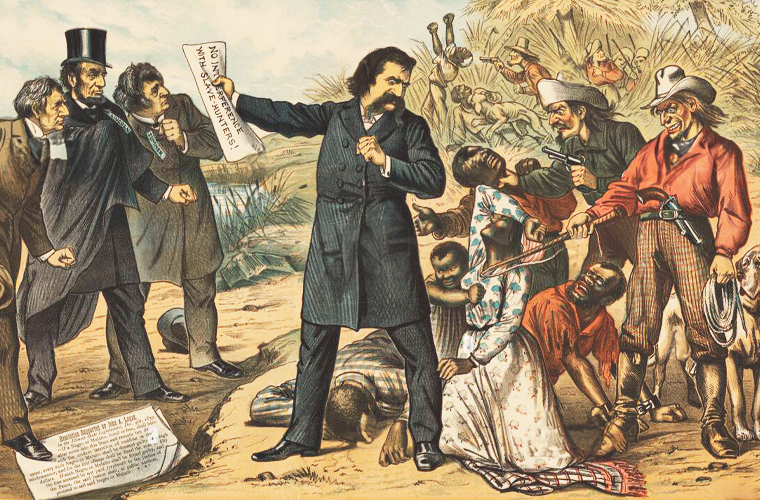In the annals of history, the existence of slave catchers stands as a stark reminder of a dark and painful chapter in human civilization. These individuals were tasked with the reprehensible duty of tracking down and capturing enslaved individuals who had escaped from their captors. This article aims to provide a comprehensive examination of slave catchers, shedding light on their role in perpetuating the institution of slavery and the lasting impact they had on the lives of countless individuals.
To understand the role of slave catchers, it is crucial to delve into the historical context in which they operated. Slavery, a system deeply rooted in racism and oppression, was prevalent in various parts of the world for centuries. In the United States, the institution of slavery was particularly pervasive in the Southern states, where enslaved individuals were considered property rather than human beings.
Slave catchers, also known as slave hunters or patrollers, played a significant role in maintaining the institution of slavery. Their primary responsibility was to locate and apprehend enslaved individuals who had managed to escape from their owners. These individuals were often skilled trackers, well-versed in the local terrain, and adept at navigating through dense forests and treacherous landscapes.
Slave catchers employed a variety of methods and techniques to fulfill their duties. They would often rely on information provided by slave owners or overseers, who offered rewards for the recapture of escaped slaves. In some cases, slave catchers would infiltrate abolitionist networks or pose as sympathizers to gain intelligence on escaped individuals. They would then employ tracking dogs, weapons, and physical force to subdue and capture their targets.
The actions of slave catchers had a profound impact on enslaved individuals who sought freedom. The constant fear of being pursued and recaptured created a climate of anxiety and uncertainty for those who dared to escape. The threat of violence and retribution hung over their heads, forcing them to live in constant fear and vigilance. Many enslaved individuals who were captured by slave catchers faced severe punishment, including brutal beatings or even death.
Despite the formidable presence of slave catchers, enslaved individuals and abolitionists fought tirelessly against the institution of slavery. Underground Railroad networks, consisting of sympathetic individuals who provided shelter and guidance to escaped slaves, played a crucial role in facilitating freedom. The efforts of abolitionists and the resilience of those seeking liberation ultimately contributed to the downfall of slavery in the United States.
The legacy of slave catchers is one that continues to haunt society today. Their actions served as a stark reminder of the inhumanity and injustice inherent in the institution of slavery. The stories of those who resisted and fought against their captors serve as a testament to the indomitable spirit of the human will. It is essential that we remember this dark chapter in history to ensure that such atrocities are never repeated.
The existence of slave catchers stands as a chilling reminder of the depths to which humanity can sink when driven by greed and prejudice. Their role in perpetuating the institution of slavery cannot be overlooked or forgotten. By understanding their methods and impact, we can strive to build a more just and equitable society, where all individuals are afforded the dignity and freedom they deserve. Let us learn from history’s mistakes and work towards a future where oppression and exploitation are relics of the past.

